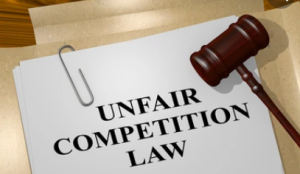Introduction
There has been an appointment to the long-awaited Myanmar Competition Commission (Commission). The Union Government’s Notification 106/2018, which was published on October 31, 2018, named the Commission’s several members.
[Images Sources : Shutterstock]
This is the following stage in putting the Myanmar Competition Law 2015 (Law), which became effective in February 2017, into practise and enforcing it. The Ministry of Commerce also announced the first in a series of Competition Rules (Rules) earlier this year, which will serve as important guidelines for putting the Law into practise. The first set of Rules included both how the Commission functions and how to handle leniency for Law violations. There is a mix of professionals and government representatives on the newly formed Commission (consistent with the approach to developing competition authorities in other countries). This includes the Director General of the Department of Trade, who will serve as the Commission’s Secretary as well as the Union Minister for Commerce, who will serve as the Commission’s Chair. They will have a variety of supporters, including attorneys, economists, ministers from the ministries of industry, home affairs, transport and communication, and the union attorney general’s office.
Following Myanmar’s election to the ASEAN chair in 2014—the first time since it joined the organization in 1997—the Competition Law No. 9/2015 was introduced.
When the ASEAN Economic Community Blueprint was adopted in 2007, the participating nations pledged to work toward implementing competition laws in all ASEAN nations by 2015. The ASEAN Regional Guidelines on Competition Policy (the “Regional Guidelines”), which were released in August 2010 and can be found here, suggest that competition law regimes should be focused on preventing, among other things, I anticompetitive business practices, (ii) abuse of market power, and (c) anticompetitive mergers. The AEC Blueprint most certainly played a significant role in the introduction of Myanmar’s Competition Law No. 9/2015.
However, the Competition Law No. 9/2015 is not Myanmar’s first piece of competition law. The Union of Burma Constitution (1948) had a broad restriction on anticompetitive conduct (Chapter II), but it had not yet been put into practice prior to the adoption of the Competition Law No. 9/2015.
While the creation of the Commission is necessary for the Law’s decision-making process, it also requires a staff of devoted and skilled employees who conduct investigations, gather evidence, and evaluate merger filings. Since a few months ago, the Ministry of Commerce has had this Competition Department in place. With the new Commission, it’s likely that the Competition Department is prepared to start carrying out the Law’s daily operations.
The Commission’s first goals will be to provide businesses in Myanmar with legal and regulatory education and training. This is typically the first phase of a new competition regime’s full efficacy. The Commission’s “low-hanging fruit” cases—generally plainly discernible competition cartel activity—are likely to follow. However, given that Myanmar’s economy is still in the early stages of development, there is a chance that initial choices will be made with an eye on market control, including dominance, exclusive dealing, or predatory pricing practices.
At this stage, as there are still no merger thresholds or filing procedures released by the Commission or the Competition Department, it is not expected merger cases will be an immediate priority.
Due to these recent events, it is feasible that the Commission’s initial decisions will start to become public as early as the middle of 2019. In light of this, companies doing business in Myanmar should actively assess their adherence to the Law and make sure that their employees is properly taught in identifying, avoiding, and resolving potential competition law issues in the workplace. A functioning international-standard competition compliance programme and routine employee training to remind them of the risks to their personal and professional well-being associated with breaking the law should be the absolute minimum of this.
The Competition Law lays the groundwork for the establishment of a regulatory body with investigative and adjudicative authority, addresses the three main areas of competition law (mergers, agreements that restrict competition, and abuse of dominance), as well as unfair trade practices (UTP), and establishes a thorough punishment regime with the possibility of private damages, the conviction of senior managers, and a leniency policy.
Enforcement agencies have put in place leniency programmes that grant immunity or lighter punishments to cartel members who willingly disclose their involvement and provide adequate cooperation with investigations in order to expedite cartel prosecution.
Conclusion
According to Myanmar’s competition laws, the courts may only be lenient toward five enterprises at a time. The regulations explicitly provide that if information is submitted prior to an investigation, the first firm may earn a 100% reduction if it offers adequately full evidence, or an 80% reduction if it merely provides supporting proof. The cap for the third, fourth, and fifth companies is 30 percent, while the second company is qualified for a decrease of up to 50 percent. However, only three organizations are qualified and each may only be granted a discount of up to 30% if information is only provided during investigations. The head of a cartel or businesses that participate only after the investigation cannot ever receive leniency.
Although Myanmar’s rules appear to be quite clear on paper, it is uncertain how they will actually be applied given the Myanmar Competition Commission’s very poor history of enforcing the laws since it was established in 2018.
Author: Tanya Saraswat, in case of any queries please contact/write back to us via email to chhavi@khuranaandkhurana.com or at Khurana & Khurana, Advocates and IP Attorney.




